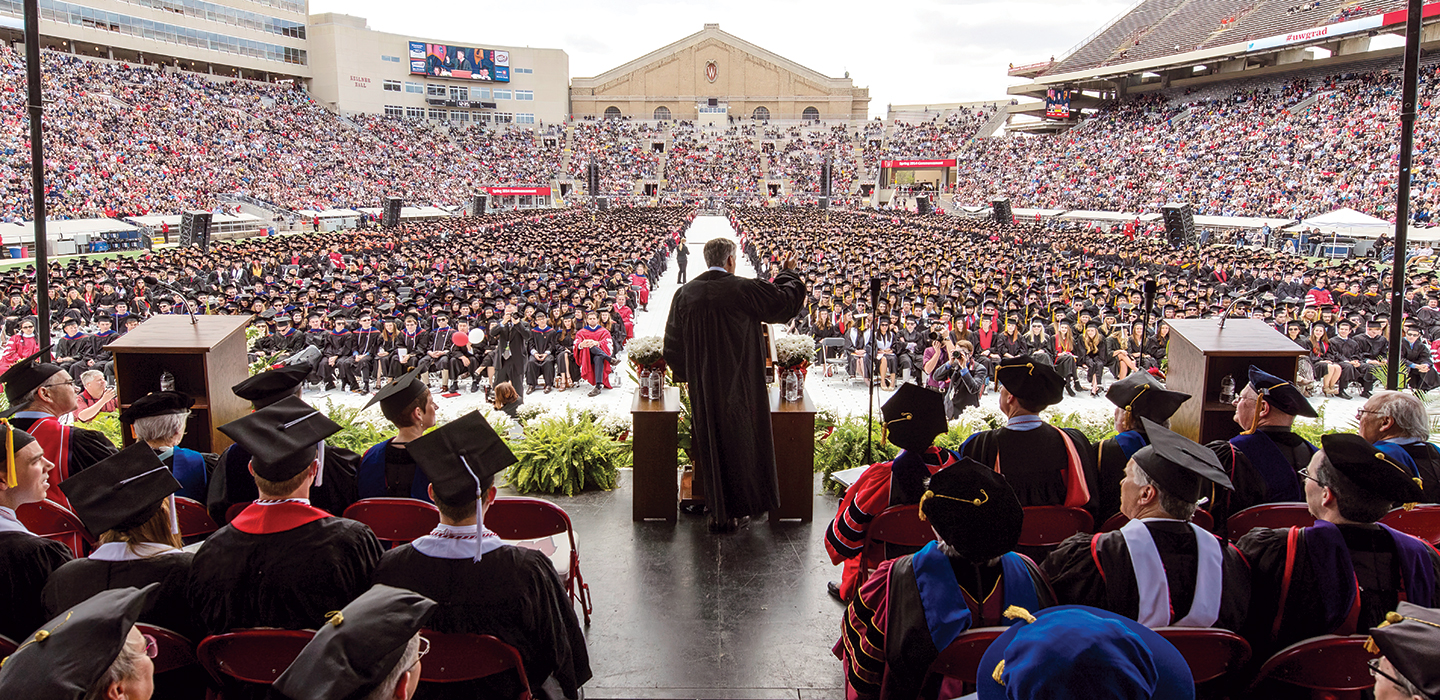
The Speech That Launched Your Life
Relive the UW’s wisest commencement addresses.
It might seem counterintuitive that the event that caps one’s college experience is called commencement. But the ceremony is not only a celebratory endnote; it also marks the beginning of a new chapter in a graduate’s life. This chapter is called “The Real World.” And what a scary place that can be! (At least, ahem, for a journalism major.)
Enter a commencement speaker, a person who has successfully navigated the real world and whose duty it is to deliver a charge to fresh graduates so they may also succeed. Since the late 1980s, a steady stream of prominent alumni and national figures have stridden to the podium, with a noticeable uptick in star power over the past decade. What other stage has been graced by both celebrity journalist Katie Couric and football giant J. J. Watt x’12?
Here’s your chance to relive some of the most memorable commencement speeches in UW history — this time, no cap and gown required.
Stop This Insanity
May 1979
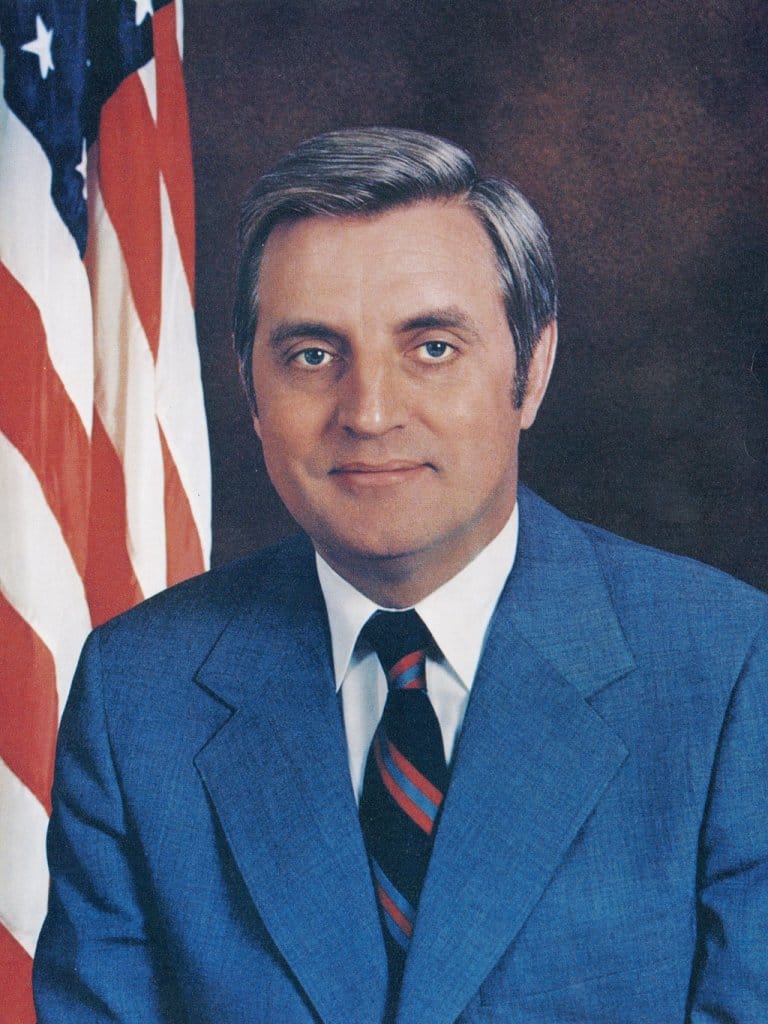
Vice President Walter Mondale preached against nuclear weapons. U.S. Senate Historical Office
It’s not every day that the vice president of the United States comes to tell you about the risk of nuclear annihilation. But such was the state of the Cold War when Walter Mondale was invited to speak at the UW’s commencement ceremony in 1979.
As a policy wonk, Mondale seized the opportunity to pitch the Camp Randall crowd on the Strategic Arms Limitation Talks II Treaty between the U.S. and the Soviets. He compared the threat of nuclear warfare to living in a “volcano’s shadow.”
“No other danger jeopardizes so completely the legacy of our civilization. No other peril threatens to trivialize so utterly the hopes and dreams that this commencement symbolizes,” he said.
Mondale unpacked arguments for and against a truce with an untrustworthy foe.
“The stark reality is that neither of us can win an all-out arms race. … Sheer sanity, common sense, and a decent respect for mankind call upon our generation to do something to stop this insanity before we are destroyed,” he said.
While the college graduates found his arguments compelling, as evidenced by several standing ovations, the U.S. Senate did not. President Jimmy Carter signed the treaty the following month, but it was never ratified by Congress.
Fight All the Way
May 1997
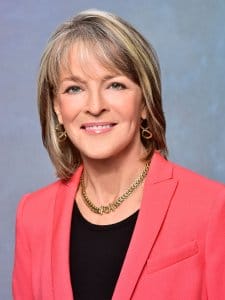
CBS’s Rita Braver shared the emotional story of a UW friend. John Paul Filo/CBS via Getty Images
As a national correspondent for CBS News, Rita Braver ’70 could have shared plenty of fascinating anecdotes with the UW’s Class of 1997. After all, she had covered Bill Clinton’s presidency, the Iran-Contra affair, and a Cold War spy ring. But instead, Braver shared the emotional story of a college friend and fellow UW alumna, Elizabeth Glaser ’69.
“[She] lit up every room she walked into,” Braver said.
When the two reconnected years after graduation in Washington, DC, Glaser shared that she had received a blood transfusion after giving birth to her daughter in 1981. She learned four years later — when her daughter developed mysterious symptoms — that the blood was tainted with HIV. She had unknowingly passed the virus to her daughter through breastmilk and, later, to her son in utero.
“Now her daughter was dying,” Braver said, “and my friend had come to Washington to try to convince the doctors at the National Institutes of Health to allow her daughter and other children to have access to AZT and other experimental drugs.”
Glaser became a leading AIDS activist, pushing for more research funding and better access to novel treatments. It was too late for her daughter, who died in 1988, but not for her son.
“Frankly, a lot of people when hit with the kind of tragedy that fell upon Elizabeth would have withdrawn, given up, become bitter, angry, or completely immobilized,” Braver said. “Elizabeth fought all the way.”
Glaser died in 1994 at age 47. But her legacy carries on with the Elizabeth Glaser Pediatric AIDS Foundation.
“So there you have it,” Braver told the UW Field House crowd, “the story of a University of Wisconsin graduate who faced adversity, and, in the process, became a hero. And that brings me to my last bit of advice: look for heroes.”
How to Think, How to Speak
May 2016
Every commencement speaker has nice things to say about the host university. It’s part of the gig. But when it comes to the UW, there might be no bigger — or more boisterous — booster than former Wisconsin governor Tommy Thompson ’63, JD’66.
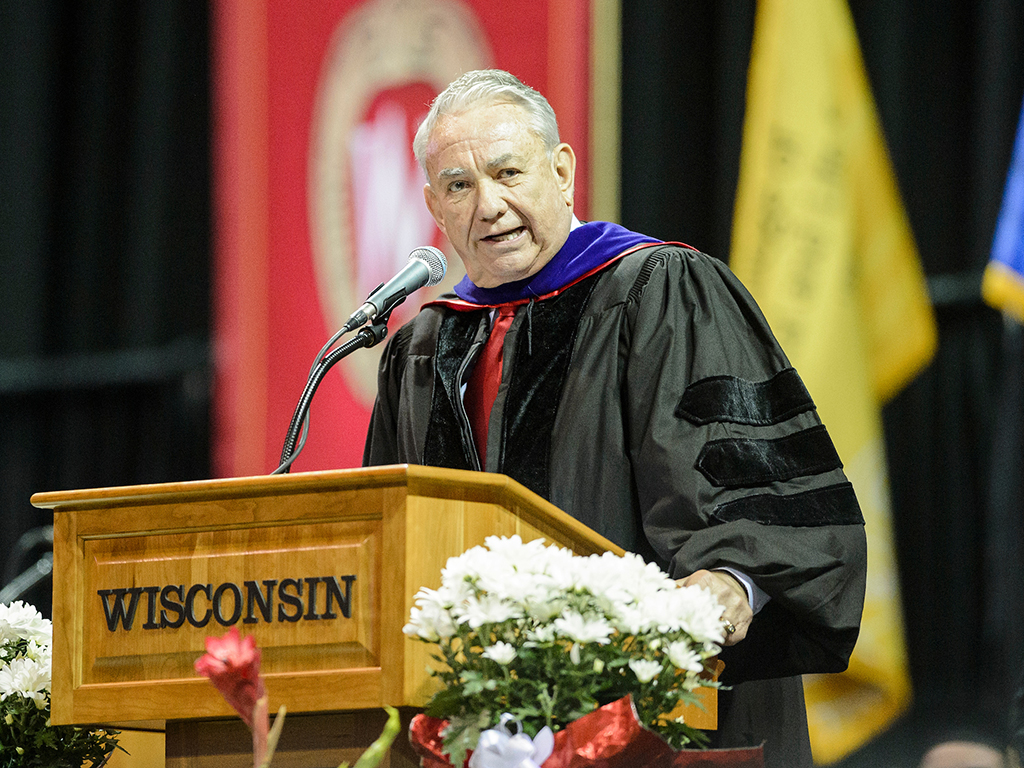
Former governor Tommy Thompson delivered a stirring tribute to the UW. Bryce Richter
Thompson arrived at the podium without any notes and delivered a stirring, from-the-heart endorsement of the university’s value to the state.
“You’re at the greatest university in the United States. … A university that taught me how to think, how to speak, how to be a citizen,” he said at the ceremony for doctoral graduates.
Never one for modesty, Thompson ticked off the many campus buildings he helped to fund from the capitol. (“You name it, and we built it.”) The lifelong Republican also supported faculty retention initiatives, through which he convinced biochemistry professor Michael Sussman to turn down a job offer elsewhere.
“He was a Democrat, never voted for me. But he came in and said, ‘I’m leaving to go to New York.’ And I said, ‘The heck you are! You’re staying in Wisconsin!’ We raised the money, and we kept those professors here.”
Then-chancellor Rebecca Blank, visibly delighted throughout Thompson’s speech, followed with the perfect summation: “Now you know why he was governor.”
Turning No into Yes
May 2016
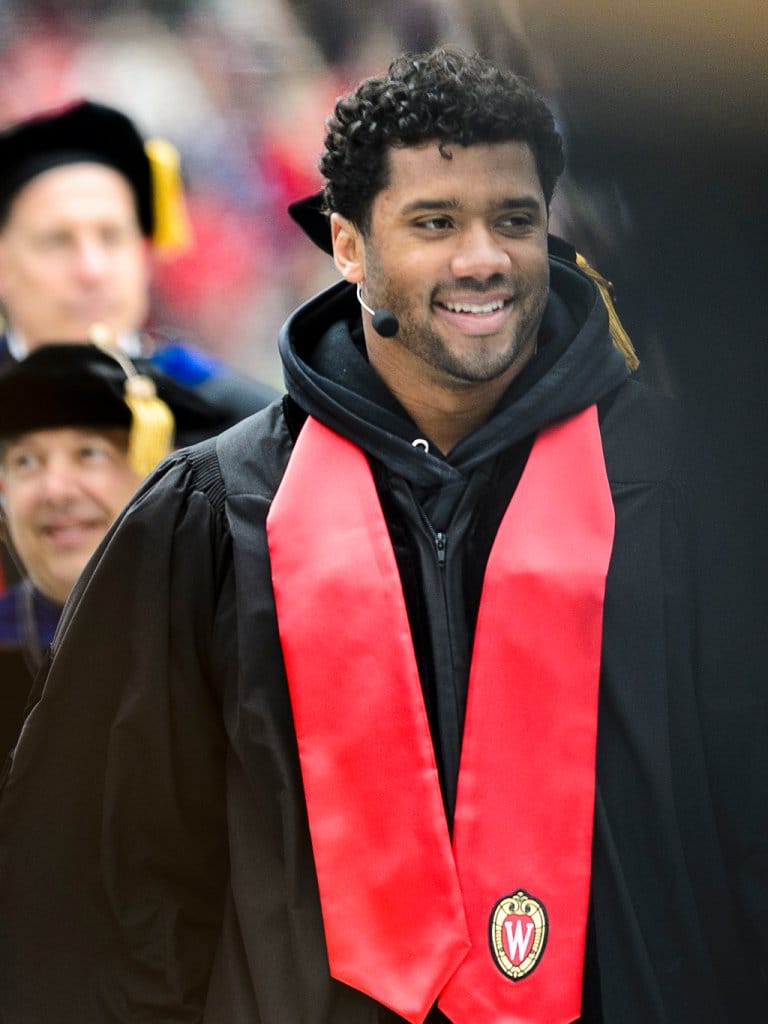
Russell Wilson drew lessons from his turbulent college football career. Jeff Miller
Perhaps the UW’s most controversial commencement speech — at least if you polled the state of North Carolina — belongs to former Badger quarterback Russell Wilson MSx’13. By the time Wilson returned to Camp Randall Stadium, he had reached the heights of his NFL career as a Super Bowl champion. But his speech focused on the adversity he had overcome, including the turbulent end to his playing career at North Carolina State before transferring to Wisconsin for his senior season in 2011.
In Wilson’s telling, he had planned to return to NC State for his last year, but Coach Tom O’Brien spurned him, saying, “You’re never going to play in the National Football League. You’re too small. There’s no chance. You’ve got no shot. Give it up.”
Wilson’s lesson: “If you know what you’re capable of, if you’re always prepared, and you keep things in perspective, then life has a way of turning no into yes.”
North Carolina media aggressively questioned his account in the days following the speech, noting that Wilson’s side pursuit of professional baseball contributed to losing his starting quarterback spot. The Charlotte Observer published a story titled “Russell Wilson Rips Open Old NC State Wounds,” while a fan blog accused him of “carelessly vomit[ing] his revisionism to fit his mundane narrative.” (But who’s bitter?)
Perhaps Wilson had learned from other commencement speakers that you never let a little exaggeration get in the way of a good story. Regardless, it seems that time heals all wounds. In spring 2021, Wilson returned to the stage to give a commencement speech — at NC State.
Looking beyond Z
December 2016
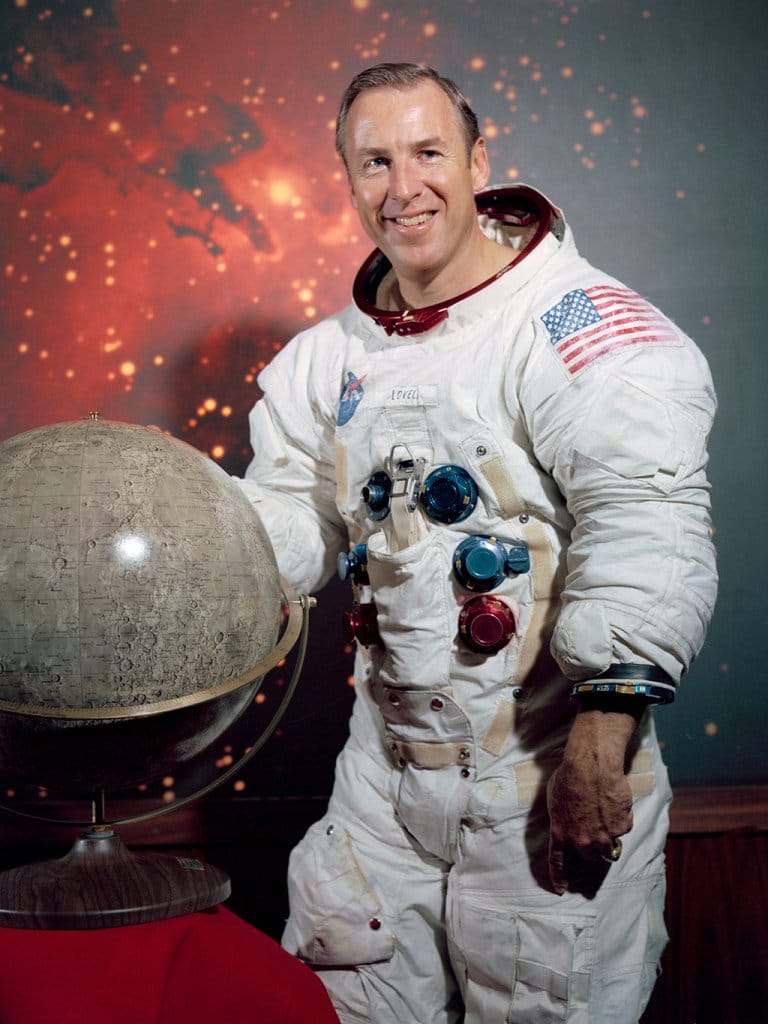
Astronaut Jim Lovell refused to accept limitations. NASA
When someone like Jim Lovell x’50 tells you to dream, you should probably listen. The legendary astronaut and his Apollo 8 crewmates became the first people to orbit the moon in 1968. Two years later, the Apollo 13 commander immortalized the words “Houston, we’ve had a problem” while guiding a critically damaged spaceship some 200,000 miles back to Earth.
Speaking to UW graduates in December 2016, Lovell — who had enrolled at the university 70 years prior on a Navy ROTC scholarship — made an impassioned plea for a quality he saw lacking in contemporary America: foresight.
“Every major advancement of civilization has met with extreme resistance,” Lovell said, citing scientist Lee de Forest’s declaration that humans would never reach the moon just a decade before Apollo 8.
“Fortunately,” Lovell continued, “there were those in days gone by who refused to live in the ‘A to Z’ world.”
Lovell invoked Dr. Seuss’s On Beyond Zebra! throughout his speech. In the book, the young narrator feels constrained by the traditional letters of the alphabet and invents new letters beyond Z. Lovell’s addendum for college graduates: keep looking beyond Z.
“You will be amazed at what you can do,” he told the captivated Kohl Center crowd. “My mother could hardly believe that I circled the moon in 1968, but today, my 50-year-old son doesn’t think it’s any big deal because, after all, we had done it as long as he can remember. Your generation will stand on a higher hill because of the mountains that we have climbed, and the whole world benefits from your ready acceptance of it.”
A Better Version of Yourself
December 2020
As the first class to spend an entire semester under COVID-19 restrictions, the winter 2020 graduates needed something — or someone — to believe in. And who better to believe in than Rose Lavelle ’17, especially after the 2019 FIFA Women’s World Cup?
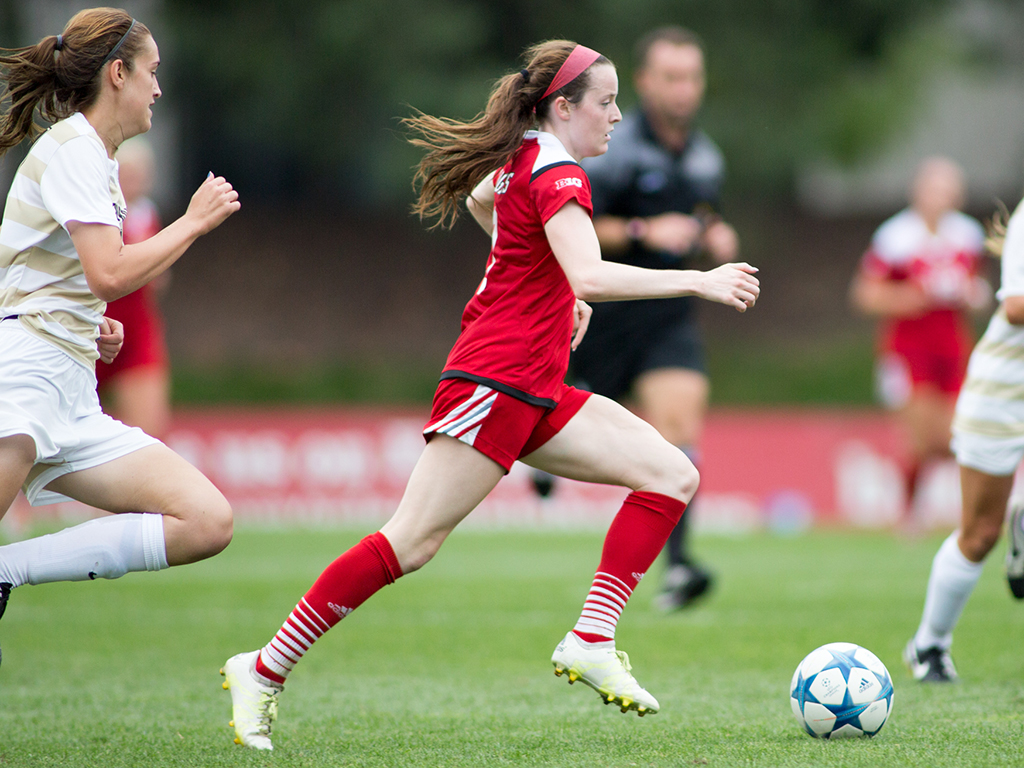
Soccer great Rose Lavelle explained what to do when life knocks you down. UW Athletics
The star soccer player and Badger great had recently capped the U.S. national team’s championship run with a brilliant solo goal against the Netherlands, turning her into a national hero overnight.
“I always get asked in interviews how my life has changed since that moment, and I always have the same answer, which is — it hasn’t. … I feel about as normal as I could ever feel and as normal as I did before the World Cup, just now with a little bit more experience,” she told the graduates in a recorded video.
That experience on the world stage gave Lavelle, then 25, some wisdom beyond her years, as when she recounted a series of debilitating hamstring injuries that plagued her early career.
“What I’ve learned is no matter how many times life knocks you down, you get back up and you go again — a better version of yourself than you would’ve been had you never been knocked down in the first place,” she said.
It was the perfect message for an unprecedented time.
Look for That Mystery
May 2021
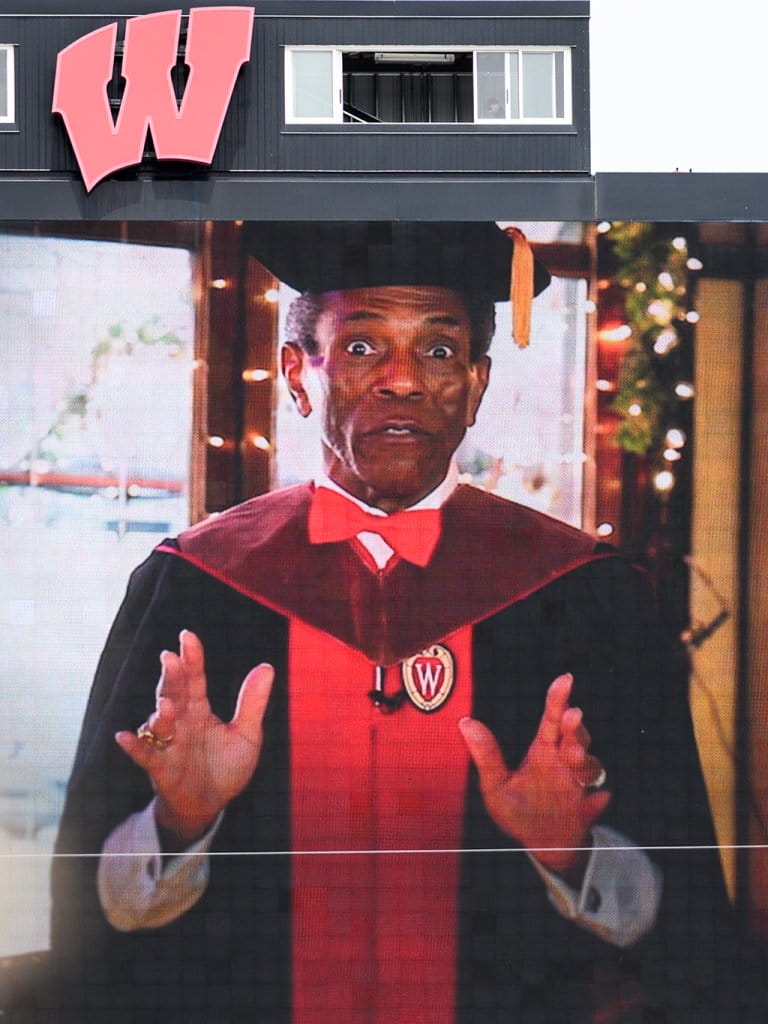
Actor André De Shields, speaking virtually, celebrated the imagination. Jeff Miller
André De Shields ’70 is no stranger to the stage — Broadway or commencement. The actor served as the UW’s commencement speaker in both 2007 and 2021, delivering singular speeches worthy of a showman.
De Shields is the rare commencement speaker who refrains from talking about himself — not a single word. It’s a remarkable fact when you consider his career started with a nude production of Peter Pan on campus and culminated in a Tony Award for his performance in Hadestown.
His latest address came at a time of civic turmoil with the COVID-19 pandemic and the murder of George Floyd. Along with bursting into song, De Shields acknowledged the troubled times. “Does it mean it is the end of the world? No. … It means that you have to make use of your limitless imagination and allow this old world that’s yearning to die — let it die. Use your imagination in helping this new world that’s eager to be born to come to life.”
And leave it to the one-and-only André De Shields to romanticize the process of getting a job.
“Don’t look for just a job,” he said. “Look for that horizon, that if you do not discover it, it will forever remain a secret. Look for that treasure, that if you do not uncover it, it will forever remain just X marks the spot. Look for that mystery, that if you don’t unravel it, it will forever remain a mystery.”
Make Yourself Uncomfortable
May 2022
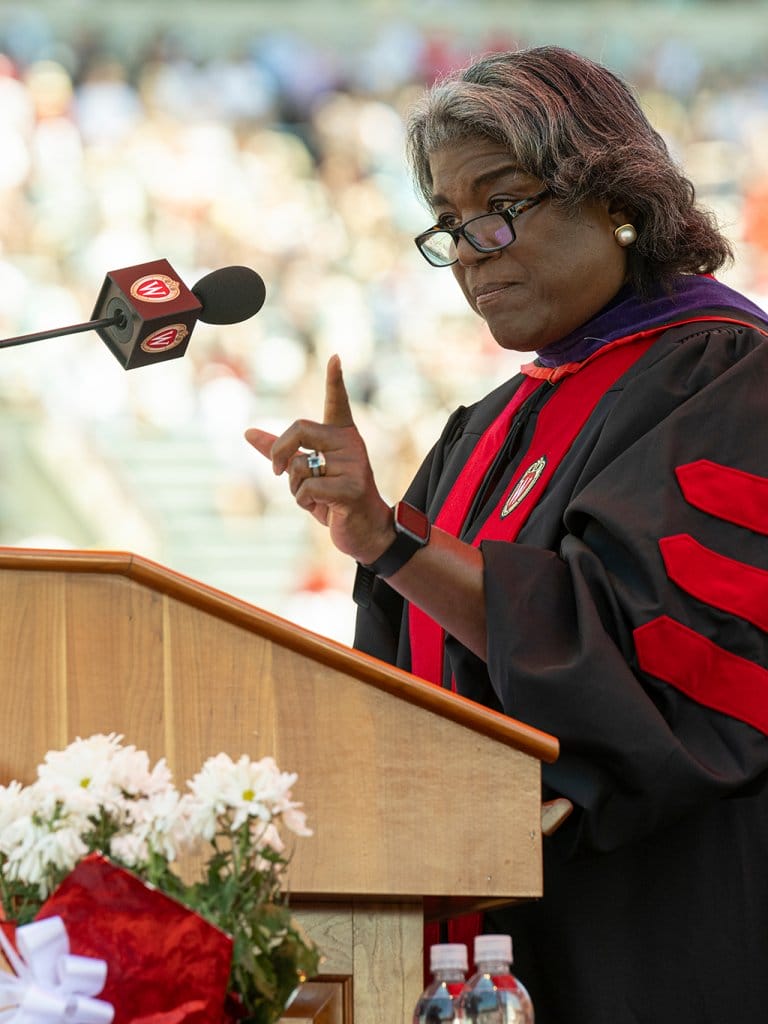
Ambassador Linda Thomas-Greenfield explored the benefits of uncertainty. Bryce Richter
On February 23, 2022, UW–Madison announced that Linda Thomas-Greenfield MA’75, the U.S. ambassador to the United Nations, would serve as the spring commencement speaker. One day later, Russian forces invaded Ukraine, dramatically disrupting our belief in the international order as well as transforming the role of one of America’s top diplomats.
The world had changed overnight. So it’s no wonder that Thomas-Greenfield’s speech to UW graduates a few months later centered on discomfort.
She began her address by noting how she felt on leaving her home state of Louisiana for the first time and arriving in Madison as a graduate student in 1974.
“Madison looked and felt like a foreign land to me,” Thomas-Greenfield told the crowd at Camp Randall. “I had no family here, no friends. And most of the people were white, and I was not. … [But] being uncomfortable here in Madison taught me how to adapt, improve, to learn.”
The UW also opened the world to her. Political science professor M. Crawford Young encouraged Thomas-Greenfield to travel abroad and conduct research in Liberia, a trip that would pave her journey to the Foreign Service.
“If you stay in your comfort zone, sticking to what you know, then you are making a bet,” she cautioned the graduates. “You are betting that your life and the world will stay the same. But let me tell you, you’re going to lose that bet every single time.”
Thomas-Greenfield highlighted the COVID-19 pandemic and the Ukraine war as world-changing episodes that the graduates had already experienced during their short time on campus.
“Shutting yourself off from the world, trying to hide from its problems, won’t serve you,” she said. “Because global challenges, even those in faraway places, are going to impact you.” •
Preston Schmitt is a senior staff writer for On Wisconsin.
Published in the Spring 2024 issue
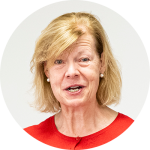 “If you want to be a Badger, it’s not enough to put on a red sweatshirt and cheer at the football games. If you want to be a Badger, you’ll wear the Wisconsin Idea on your sleeve and make the time you spent here count for something.”
“If you want to be a Badger, it’s not enough to put on a red sweatshirt and cheer at the football games. If you want to be a Badger, you’ll wear the Wisconsin Idea on your sleeve and make the time you spent here count for something.”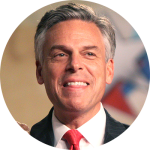 “You don’t have to agree on everything to work together on something. … This is the way progress gets made, when we refuse, despite our differences, to write each other off.”
“You don’t have to agree on everything to work together on something. … This is the way progress gets made, when we refuse, despite our differences, to write each other off.”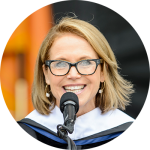 “My mom’s expression to her four children was, ‘Let ’em know you’re there!’ Needless to say she did not raise shrinking violets. You got to get out there and get yourself noticed.”
“My mom’s expression to her four children was, ‘Let ’em know you’re there!’ Needless to say she did not raise shrinking violets. You got to get out there and get yourself noticed.” “No matter how big you are, no matter how strong you are, no matter how tough you may be, everybody needs to ask for help at some point in their lives. … On the path to your dreams, you will not do it alone.”
“No matter how big you are, no matter how strong you are, no matter how tough you may be, everybody needs to ask for help at some point in their lives. … On the path to your dreams, you will not do it alone.”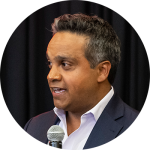 “As someone who has been humbled by having my hopes dashed repeatedly, I know it takes a great deal of courage to view our mishaps as bellows that can nourish, rather than extinguish, the embers of our ambition.”
“As someone who has been humbled by having my hopes dashed repeatedly, I know it takes a great deal of courage to view our mishaps as bellows that can nourish, rather than extinguish, the embers of our ambition.” “Your job is to fill your days with what lights your soul. … Once your soul is lit, the path will reveal itself. And on your path — and this is most important — make sure you watch out for deer.”
“Your job is to fill your days with what lights your soul. … Once your soul is lit, the path will reveal itself. And on your path — and this is most important — make sure you watch out for deer.”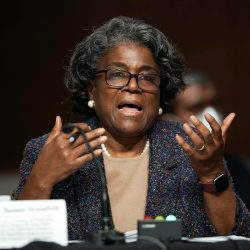
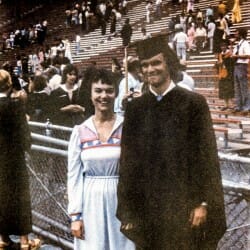
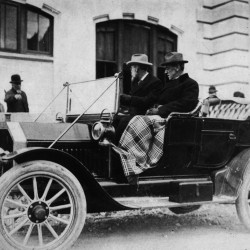
Comments
Peter Christianson March 5, 2024
Please, please, PLEASE dig out and post the recording of Andre De Shields addressing the 2007 graduates! I had the pleasure of being there as a representative of the WAA. He literally blew the roof off the Kohl Center with an address that was part speaking, part singing, and all heart! One of the most amazing presentations I have witnessed in my nearly 75 years on this earth! There must be a copy somewhere!!
Wan Ting Su April 24, 2024
What a wonderful article. again, this proves that UW Madison is and will continue to be the world leading university since the school delivers deep and kind and universal values, and implement all these values from all perspectives. I am so glad that my son is part of this. Thank you so much.
Dan P. DuVall BS Che December 16, 2025
We had a commencement speaker at Camp,Randell and I, but I do not remember who. I guess he did not make a significant impression on me. The year was 1967. Can you tell me who it was? However,
my education with Hougen, Watson, Ragatz, and Bird led me to a great opportunity and career with the DuPont Company for 37 great years. Retired since 2005 and loving it.
Thank you,
Dan DuVall
Niki Denison December 16, 2025
University records indicate that the 1967 commencement speaker was UW President Fred Harvey Harrington.